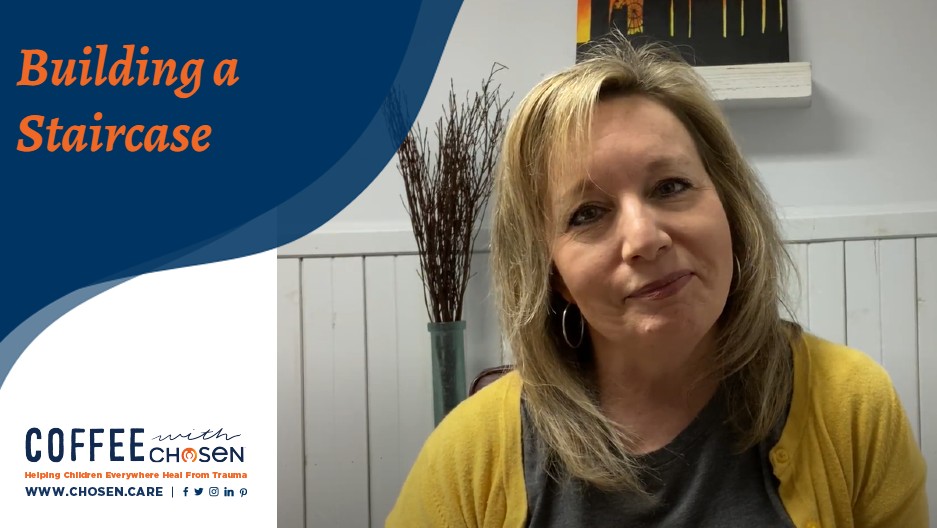Dr. Dan Siegel helps us understand the brain in a simple way by talking about the upstairs and downstairs brain. He says that children from hard places are used to living in the downstairs brain because of their difficult past. As caregivers, it is our job to help our children build a staircase to the upstairs brain. Join us today as Staci shares helpful tips to build and strengthen this staircase.
Building a Staircase
Hi, my name is Staci and I’m with Chosen. Alex on our team here at Chosen loves to tell the story of his trip to explore the beauty of Grand Teton National Park–a couple years ago with his brother he talks about the breathtaking mountains and the beautiful peaceful forest. While hiking one of the trails one day he and his brother came around a corner and saw a black bear. At that moment, there was not a logical thought of what to do. They knew they needed to give the bear space and be ready to spray their bear spray if it got too close. Alex says that they felt calm only after the bear went the other direction and into the forest.
That response to fear that they felt when they saw the bear is what children from hard places live with almost every day. In the book called The Whole Brainchild, Dr Dan Siegel gives us a simple picture of the brain by talking about the downstairs brain and the upstairs brain. He says that children from hard places are used to living in their downstairs brain, because their past has been stressful and frightening. And they operate out of that downstairs brain even when they are physically safe.
Our job as caregivers is to help our kids build a set of stairs that can reach the upstairs part of the brain. The downstairs brain is our primitive brain it is created to survive scary things, but the upstairs brain is where things like empathy consciousness and logic live. Let me ask you this is it easier to go up a set of stairs or down a set of stairs. For me, it’s certainly easier to go down a set of stairs for your children it’s easier to go downstairs as well. That’s why they can go from just fine to fighting, running away, or freezing to keep themselves safe and feeling safe they go back to the things that help them survive in the past.
As caregivers of children from hard places we must help build a staircase to the upstairs brain. We cannot expect our children to build that staircase themselves. One way to help your children get to their upstairs brain is by asking open-ended questions. So instead of asking, why did you do that? Ask, can you tell me what just happened, or did you remember something just then. In those downstairs brain moments, also remember that our kiddos are feeling unsafe even though they might be physically safe. Asking open-ended questions and working on helping a child feel safe can strengthen that set of staircases. So that they’re going downstairs when they literally encounter a bear.
If you could use some help understanding impacts of how the hard histories of your children are causing them to live downstairs, give us a call today at 830-455-0101, we’d love to help.












